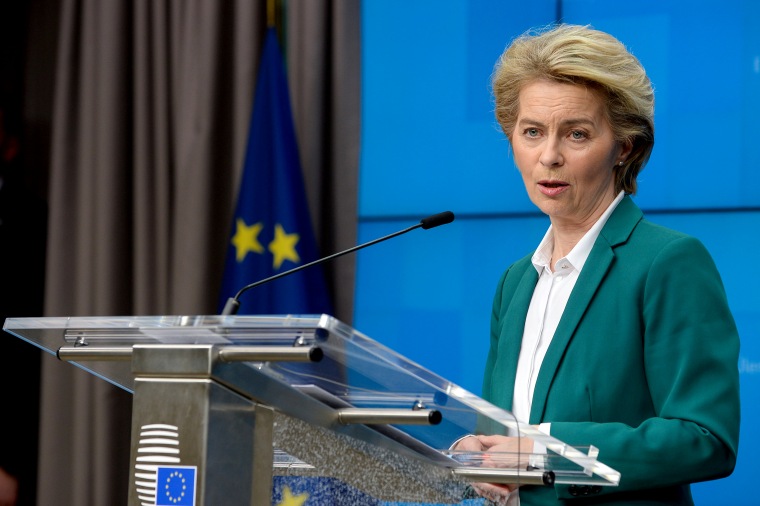LONDON — The European Union on Tuesday announced a sweeping 30-day ban on most nonessential travel into the 27-country bloc.
There is still a need to guarantee passage of medicine and food stamps, and citizens must be able to travel to their home countries, European Council President Charles Michel said.
European Commission President Ursula von der Leyen said, "We are ready to do everything that is required. We will not hesitate to take additional measures as the situation evolves."
Full coverage of the coronavirus outbreak
Although it is the world's largest political and economic club, with a combined population of 450 million, the E.U. is limited in what it can tell its members to do.
Its unity has frayed at different stages of the crisis as individual states have pursued their own policies — Germany, for example, briefly banned the export of masks to beleaguered Italy.
Download the NBC News app for breaking news and politics
Von der Leyen had outlined the measures Monday. She said there would be "green lanes" at the borders of the 26 "Schengen Area" countries to give fast access for food and medicine haulage and emergency services.
"We need to do more to reduce huge pressure on our health care system," she said.
The Schengen Area is a zone including most E.U. states and a handful outside the bloc where it's technically not necessary to show a passport at the border. (In reality, there are several rolling restrictions between several member states.)
European countries continued to impose their own policies.
French President Emmanuel Macron told his people that they were fighting a "war" against the virus and announced a nationwide lockdown for 15 days. And the U.K., which until recently was an E.U. member and still follows most of its rules, advised against all nonessential travel to any country for the next month.

